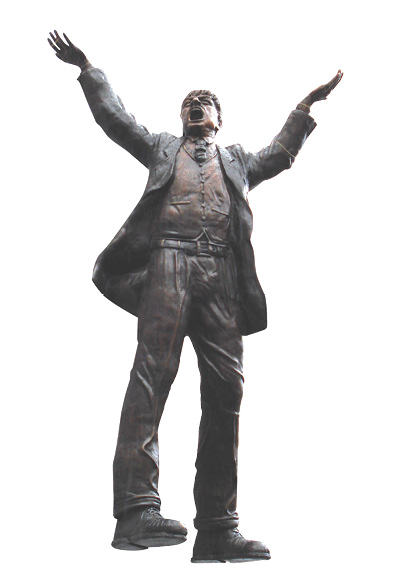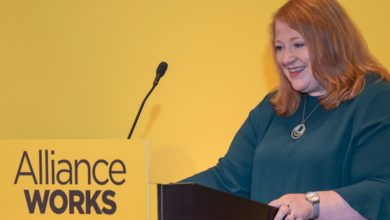Trade Union Desk

 The People’s Plutocrats
The People’s Plutocrats
John O’Farrell writes that no matter how loudly the assertions of the populists are, there are millions of people for whom they cannot speak, and who will not let them.
When Nigel Farage thought the exits polls were correct and that the UK would remain in the EU, he naturally accepted this with the good grace we expect from such a well-reared public figure: “In a 52-48 referendum this would be unfinished business by a long way”, he snarled, with the same careful positioning between the nobs and the mob he exhibited after the High Court judged that the UK is a Parliamentary democracy after all: “If people in this country think that they’re going to be cheated, they’re going to be betrayed, then we will see political anger the likes of which none of us in our lifetimes have ever witnessed in this country.”
When Donald Trump got over his fears of the US Presidential election being rigged, he responded to the disparity between his triumph in the Electoral College and the popular vote tally showing that Hillary Clinton was more popular than him by a margin of two million voters: “In addition to winning the Electoral College in a landslide, I won the popular vote if you deduct the millions of people who voted illegally.” This goes beyond the regular spoofing and bluster. This denies citizenship to millions.
To say that there isn’t so much as a shred of evidence for this gives too much credit to such racist bombast. According to one senior attorney in the Voting Section of the US Department of Justice’s Civil Rights Division: “We know historically that this almost never happens. You’re more likely to get eaten by a shark that simultaneously gets hit by lightning than to find a noncitizen voting.”
Where this goes beyond Trump’s trademark narcissism and bullying is the assumption that the real Americans he just spoke about uniting included among their number some non-real Americans, like Farage when he congratulated the ‘decent people of this country’ the morning after the referendum; presumably the same decent people who could riot if Parliament gets a say in Brexit, or who patrol social media and news comment streams like a digital goon squad.
According to Jan-Werner Muller (the sort of expert on populism Michael Gove warned us about), this claim to a moral monopoly of representation has two consequences that are immediately deleterious for democracy: “Populists accuse all other political contenders of being illegitimate,” (“Lock Her Up!”), and furthermore, populists hold that those who don’t support them – or who don’t share their sense of what constitutes the ‘real people’ – may not themselves properly belong to the people.” This society has plenty of exposure to the consequences of “we are the people”.
This is both old in terms of history’s regular warning signs, and new in its manifestation in advanced and settled democracies.
Populism, also hates free trade unions, those who dare to represent the ‘people’ while they are working. Not co-incidentally, this loathing of ‘alien’ organised labour tends to support the local oligarchs who fund these regimes, all of which have a direct correlation between petty repression and distain for the rule of law with soaring inequality and crony capitalism.
And so, we enter the debate on Article 50 with myths about ‘Welfare tourism’, dental checks on child refugees, and judges branded as ‘enemies of the people’, while big business get tax cuts, fracking, Heathrow, and no interfering worker-directors on their boards.
Here is what the trade unions want on the Brexit agenda. Unions oppose the UK leaving and are determined to ensure that the vote to remain from the Northern Ireland electorate be respected. The unions want:
• Protections on workers’ rights to be respected, maintained and improved;
• A strategic approach to protect those jobs at most risk and to develop the economy to withstand the shocks on the way;
• To maintain membership of both the EU Single Market and Customs Union;
• Safeguarding the rights earned in the Belfast Agreement;
• The free movement of labour, as well as goods, capital and services;
• Funding for programmes presently supported by the EU; and
• A role for the trade union movement and civil society in Brexit negotiations.





